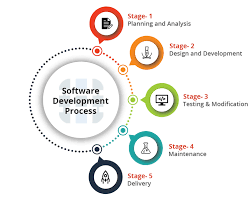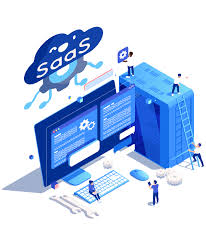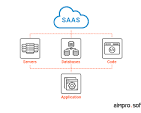Mastering the Art of App Building Software: A Guide to Creating Your Own Mobile Apps
The Power of App Building Software
In today’s digital age, the demand for mobile applications is higher than ever. Businesses, entrepreneurs, and individuals are constantly looking for ways to reach their audience through mobile devices. This is where app building software plays a crucial role.
App building software provides users with the tools and resources needed to create customized mobile applications without the need for extensive coding knowledge. These platforms offer a user-friendly interface that allows individuals to design, develop, and deploy apps quickly and efficiently.
Benefits of Using App Building Software:
- Cost-Effective: App building software eliminates the need to hire expensive developers, making app development more affordable for businesses of all sizes.
- Rapid Development: With pre-built templates and drag-and-drop features, users can create apps in a fraction of the time it would take with traditional development methods.
- No Coding Required: Even individuals with no coding experience can create functional and visually appealing apps using app building software.
- Customization: Users have the flexibility to customize every aspect of their app, from design elements to functionality, to suit their specific needs.
- Cross-Platform Compatibility: Many app building platforms support cross-platform development, allowing users to create apps that work seamlessly on both iOS and Android devices.
Whether you’re a small business looking to expand your online presence or an entrepreneur with a groundbreaking app idea, app building software can help you bring your vision to life. By leveraging the power of these tools, you can create innovative mobile applications that engage users and drive business growth.
Top 7 FAQs About Choosing and Using App Building Software
- Which software is best for making apps?
- How can I create my own app?
- Which software is best for app design?
- Can I build my own app for free?
- How do I build an app?
- What is the best program to build an app?
- Can you build an app for free?
Which software is best for making apps?
When it comes to choosing the best software for making apps, the answer largely depends on individual needs and preferences. There are various app building platforms available in the market, each offering unique features and capabilities. Some popular options include Appy Pie, BuildFire, Thunkable, and Adobe PhoneGap. It’s essential to consider factors such as ease of use, customization options, pricing, and compatibility with your desired platforms before selecting the software that best suits your app development requirements. Conducting thorough research and possibly trying out demo versions can help you determine which software aligns most closely with your specific app-building goals.
How can I create my own app?
Creating your own app has never been easier with the availability of user-friendly app building software. To create your own app, you can start by choosing a suitable app building platform that aligns with your requirements and skill level. These platforms often provide intuitive interfaces, drag-and-drop functionality, and pre-built templates that simplify the app development process. By following step-by-step guides and tutorials offered by the software, even individuals with no coding experience can design, customize, and deploy their own apps across various platforms. With a clear idea of your app’s purpose and target audience, along with the right app building tools at your disposal, you can bring your app idea to life efficiently and effectively.
Which software is best for app design?
When it comes to app design, choosing the best software depends on your specific needs and skill level. There are several popular tools available for app design, each with its own strengths and features. Some commonly recommended software for app design includes Adobe XD, Sketch, Figma, and InVision Studio. These tools offer intuitive interfaces, robust design capabilities, and collaboration features that cater to both beginners and experienced designers. Ultimately, the best software for app design is the one that aligns with your workflow, project requirements, and personal preferences to help you create visually stunning and user-friendly mobile applications.
Can I build my own app for free?
Many individuals often wonder, “Can I build my own app for free?” The answer is yes, with the availability of various app building software tools that offer free plans or trials. These platforms provide users with the resources to create basic mobile applications without incurring any costs. While free app building software may have limitations in terms of features and customization options compared to paid versions, they still enable individuals to explore app development and bring their ideas to life without a significant financial investment.
How do I build an app?
Building an app can seem like a daunting task, but with the right tools and resources, it can be a straightforward process. One popular approach is to use app building software, which provides a user-friendly platform for creating customized mobile applications without the need for extensive coding knowledge. By following simple steps such as selecting a template, customizing design elements, adding desired features, and testing the app before deployment, individuals can bring their app ideas to life efficiently. With the accessibility and flexibility offered by app building software, anyone can build an app tailored to their specific needs and goals.
What is the best program to build an app?
When it comes to the frequently asked question, “What is the best program to build an app?” the answer can vary depending on individual needs and preferences. There are several popular app building software options available in the market, each offering unique features and capabilities. Some of the top programs for building apps include platforms like Appy Pie, BuildFire, Xamarin, and Adobe PhoneGap. It’s essential to consider factors such as ease of use, customization options, pricing, support for various platforms, and integration capabilities when choosing the best program to build an app that aligns with your specific requirements and goals.
Can you build an app for free?
When it comes to the frequently asked question, “Can you build an app for free?” the answer lies in the availability of various app building software options that offer free plans or trials. While some app building platforms provide basic features for free, users may encounter limitations in terms of functionality, branding, or customization. However, these free options can still be a great starting point for individuals or businesses looking to explore app development without a significant financial investment. It’s important to assess your specific needs and goals to determine whether a free app building solution aligns with your requirements or if investing in a paid plan would better suit your long-term objectives.











